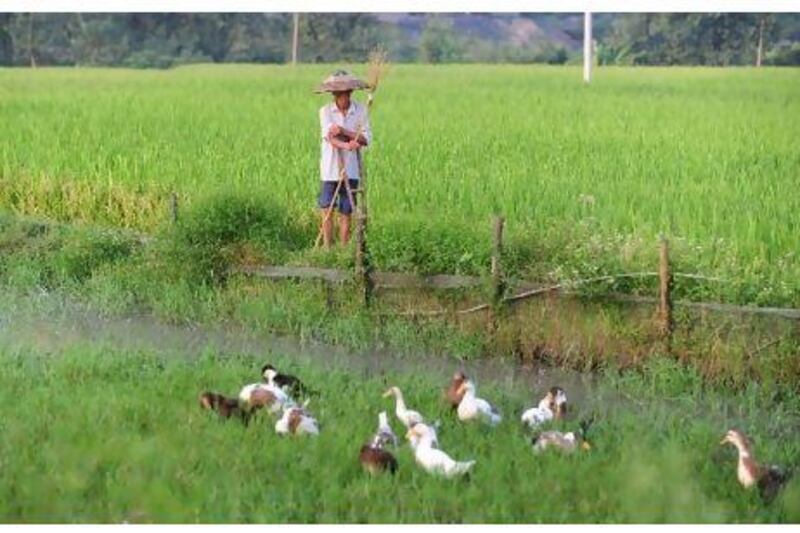My wife's father came from a tiny village in the south of China called Loong Poon Lei, an idyllic corner of the People's Republic.
I was taken aback by the beauty of the place when I visited after a trip to Hong Kong, some four hours drive to the south.
Mile after mile of paddy stretched to the horizon. The flat green expanse was dotted with elderly women and men bent double under traditional straw hats as they picked weeds and replanted rice. An occasional water buffalo stood up to its ankles in the mud shaded by banana tree leaves.
Whatever economic miracle is sweeping big Chinese cities such as Beijing and Shanghai, it has given Loong Poon Lei, and hundreds of other villages just like it, a wide berth. The people living there today are either elderly or infants - the rest having fled to the cities for work. They are poor, sharing communal cooking facilities and a subsistence lifestyle.
China is, of course, the "c" in Bric, the other letters standing for Brazil, Russia and India in an acronym coined by the Goldman Sachs banker Jim O'Neill. These countries represent an economic miracle, we are told, a phenomenal growth story against all the odds.
And they have made enormous strides in recent years, lifting millions out of poverty and promising a bright, educated and productive future for generations to come. But perhaps it is time to reconsider just how miraculous their economic development really is.
The first time I visited India, about 20 years ago, one of the most memorable moments in the month-long trip occurred just after I arrived in Delhi. A young woman, in a state of distress, handed me a baby as I sat in the back seat of a tuk-tuk en route to my hotel. The child was dead, his mother was clearly malnourished.
The city seemed to me back then overwhelmed with poverty. Street children, beggars and scam artists plied their exhausting trade along the length and breadth of every street.
Returning to India late last year Delhi was transformed. Kahn Market, with its posh boutiques, artisanal designers and coffee shops on every corner was most strikingly different.
On my previous visit to the same spot I was scammed by some enterprising young thieves who first used sleight of hand to throw mud on my feet before offering to clean my trainers for a dollar. They then asked me to sit on an orange box with an elaborately placed clean handkerchief on top before removing my shoes for cleaning. Then they ran away. Somebody somewhere ended up with a pair of size 14 Nikes that day.
Delhi may have moved on immeasurably since but huge parts of rural India are still missing the basic necessities of life - running water, paved roads, schools and decent work. Just like Loong Poon Lei.
Stories are similar in Brazil. A lawyer friend in Sao Paulo told me recently how he is a regular at a restaurant he claims is the best steak house in the Americas. To get to it though, he has to travel past one of the biggest favelas in the world.
What is more, even though Brazil's economy has boomed for the past decade, almost twice as many people live in slums these days than they did at the end of the 1960s. In fact the growth of slums is a direct consequence of the rapid urbanisation that has accompanied the rapid economic growth.
In Russia, meanwhile, the per capita GDP was forecast by The Economist this year at just US$13,650 (Dh50,137), $4,000 less than in Greece.
The Bric nations have come a long way. They have moved from providing about 11 per cent of global GDP in 1990 to about 25 per cent today. Goldman Sachs claims in its most recent assessment of the grouping it created, that the Brics are at least half way through "The Great Transformation" and should account for about 40 per cent of global GDP by 2050.
But the success or failure of the Brics economic miracle must be measured by more than the balance sheet. It can only truly be declared when the villagers of Loong Poon Lei and their counterparts in Brazil, India and Russia are enjoying the fruits of development to the same degree as their more fortunate metropolitan neighbours.





